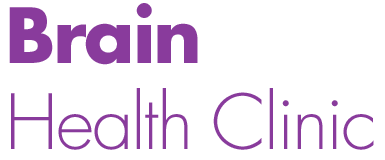
Our last article included this positive statement by scientists about the usefulness of neurofeedback for improving the symptoms of stroke victims: “There is hope for older adults suffering from mild cognitive impairments, strokes, and Parkinson’s disease that neurofeedback may be a safe and effective treatment for them.” What do the studies show about the effectiveness of neurofeedback as a therapy for stroke side effects?
The journal Frontiers in Human Neuroscience published a significant review of the scientific literature on the topic of strokes and neurofeedback. The article is entitled “Toward an Adapted Neurofeedback for Post-stroke Motor Rehabilitation: State of the Art and Perspectives.” Perhaps the most interesting aspect of the piece is that the French and Chinese researchers start from the understanding that neurofeedback has definite benefits as a post-stroke therapy. And although the brain naturally improves its functioning through post-stroke repair during the first six months after the event, the researchers still recommended early therapy for stroke victims. They even cited one research study that examined the effects of neurofeedback administered only one week after a stroke.
Considerations for Post-Stroke Neurofeedback Therapy
Strokes can affect any portion of the brain due to cardiovascular issues or trauma. As a result, there can be limitations on the effectiveness of neurofeedback based on the location of the stroke lesions. It is possible, for example, that the site of the brain damage is actually a part of the brain required to utilize the Brain Computer Interface, commonly called the BCI, that allows a patient to use neurofeedback. Barring such physical issues, neurofeedback can help the brain retrain itself to control upper and lower body movements.
Neurofeedback Promotes Neuroplasticity
One of the primary reasons why neurofeedback is believed to help improve post-stroke symptoms is because the therapy promotes brain plasticity. We discussed this subject in an earlier article, but to put it briefly, brain plasticity or neuroplasticity refers to the brain’s ability to reform, reconstruct, and reshape its neural network. Neuroplasticity is at its highest when we are younger, but even into old age our brain remains “plastic.” Brain plasticity is what allows us to learn and adapt mentally to new situations throughout our life. It is especially important when it comes to recovering from stroke. Since strokes destroy a portion of the brain, rerouting the affected part of the neural network is key to restoring body functionality.
This is where neurofeedback can be useful as a catalyst to recovery. The researchers stated, “Over the past decade, studies have revealed the potential of Brain–Computer Interfaces (BCI), including Neurofeedback (NFB), to stimulate neural plasticity in motor areas of the brain and promote functional improvement.” The most important considerations were the location of the stroke lesion, an assessment of existing brain activity, and the development of a neurofeedback therapy that addresses the known factors.
Experienced Providers Improve Outcomes
The authors of the study made this important point: “The need for an experienced operator is relevant to consider, as it will affect other dimensions, like portability and cost.” The Brain Health Clinic provides the experience you want and the portability you may need in order to improve the chances for success with neurofeedback therapy. Our extended experience with neurofeedback started with personal studies in neurofeedback for traumatic brain injury. We offer and encourage the use of pre-therapy assessments of brain activity. And our desire to serve patients throughout the recent pandemic motivated the use of remote neurofeedback for clients who are on the go or who need service from a distance.
To find out more about whether you or a loved one would be a good candidate for post-stroke neurofeedback therapy, contact the Brain Health Clinic for a free consultation. Let us help you to make life brilliant!
